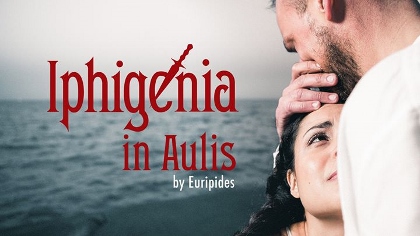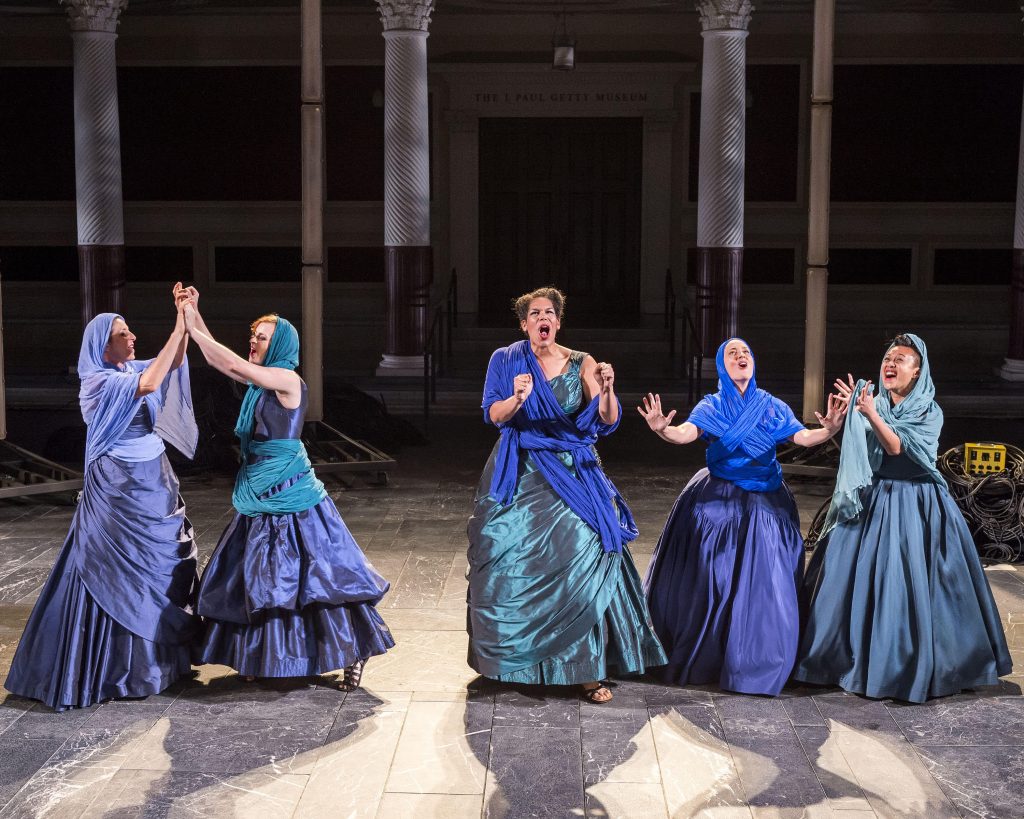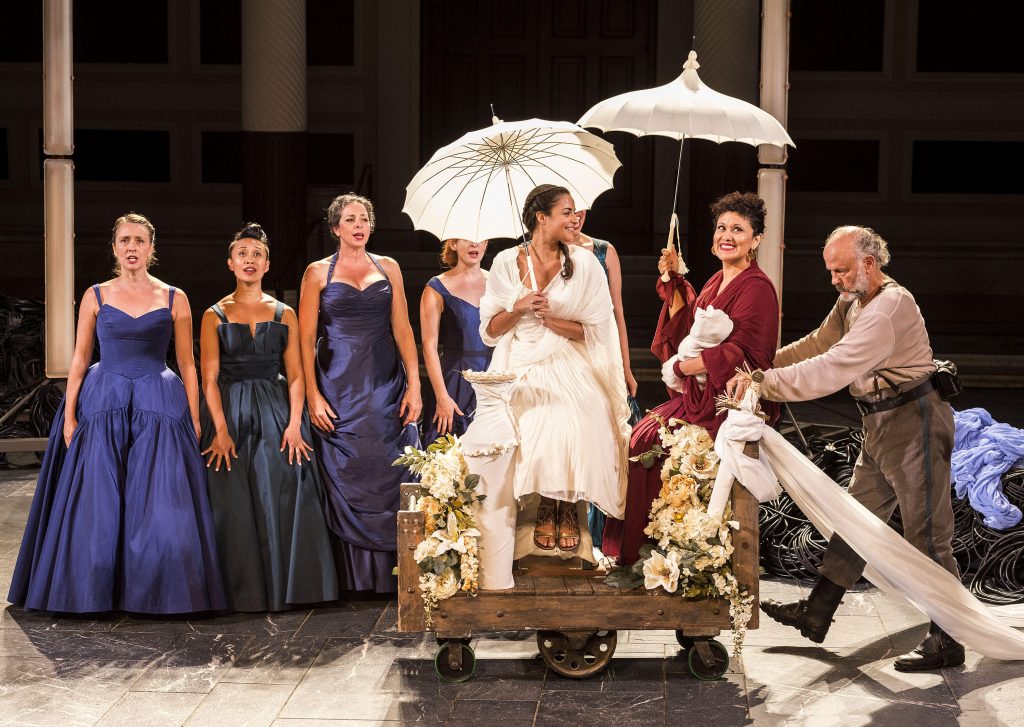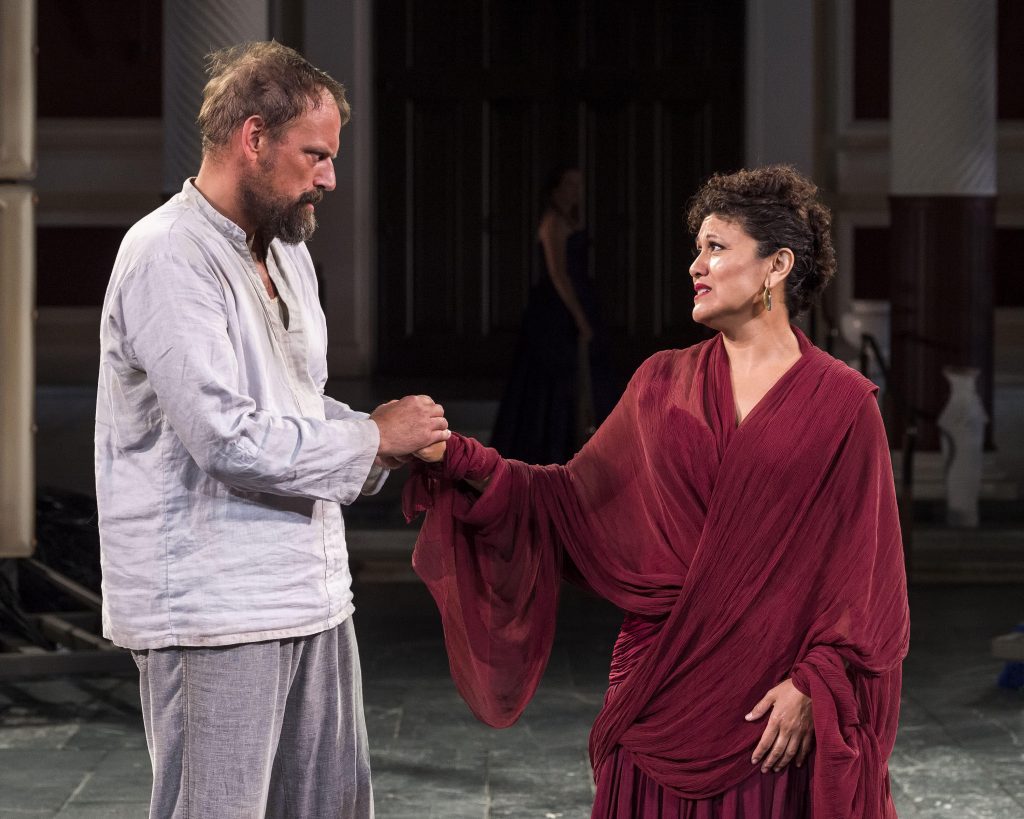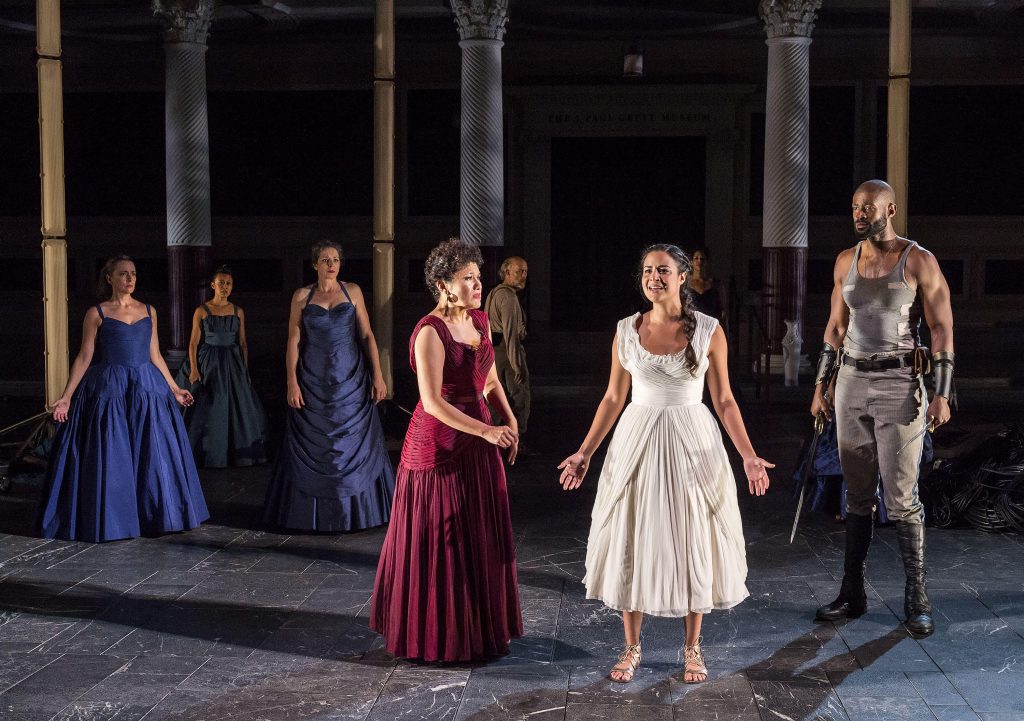AULIS WELL AT THE GETTY
Check out the production of Euripides’ Iphigenia in Aulis by Chicago’s Court Theatre, and you’ll see why I rave about theater in the Windy City. Guided by the scholarship of translator Nicholas Rudall (founding artistic director of Court Theatre from 1971 to 1994), director Charles Newell has crafted a powerful journey that seems at once dream-like and achingly real. His respect for the play’s ancient origins is clear—from the Getty Villa’s magnificent amphitheater to the heightened emotions of the ensemble—and yet the production never feels stale. Rather, Newell’s deft handling of the play’s emotional beats brings the story into a distinctly contemporary context.
The city of Aulis is still. Not a bird sings, not a breath of wind stirs the sails of the Greek navy stagnating in the harbor. Agamemnon and his men have been waiting for weeks for the favorable wind that will allow them to sail for Troy, where Paris has taken Helen, the wife of Agamemnon’s brother Menelaus.
Yet the gods will not grant the Greeks a fair wind until the goddess Artemis, patroness of Aulis, has been appeased with a sacrifice: Agamemnon’s daughter, Iphigenia. Agamemnon has already sent a letter to his wife, Clytemnestra, asking that Iphigenia be sent to Aulis in order to wed famed soldier Achilles, but now he’s having second thoughts. He sends a slave with a second letter contradicting the lie, but the slave is intercepted by Menelaus, and the letter stolen.
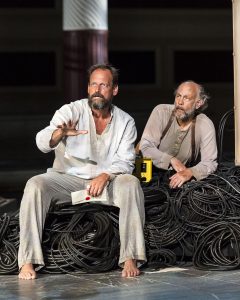 It is too late; Iphigenia arrives at Aulis with her mother and infant brother, overjoyed at the prospect of a wedding. When Clytemnestra learns the truth, she is horrified, and tries to convince her husband not to kill their child. When this fails, she turns to Achilles, who swears that he will protect Iphigenia.
It is too late; Iphigenia arrives at Aulis with her mother and infant brother, overjoyed at the prospect of a wedding. When Clytemnestra learns the truth, she is horrified, and tries to convince her husband not to kill their child. When this fails, she turns to Achilles, who swears that he will protect Iphigenia.
But rumor travels quickly among bored soldiers, and soon the offstage Greeks learn the real reason for Iphigenia’s arrival. Demanding her death, they turn against Achilles when he tries to protect his would-be bride. Outnumbered, Achilles flies to Iphigenia’s side, swearing loyalty. But the girl has already begged her father for life, and realizes now that the glory of Greece depends on her sacrifice. She turns Achilles away, comforts her mother, then runs off in search of her father and her death. Agamemnon sacrifices her to the goddess Artemis, and immediately there is the sound of rushing wind. The sails pull taut, the waves lap at the hulls. The Greeks are free to sail.
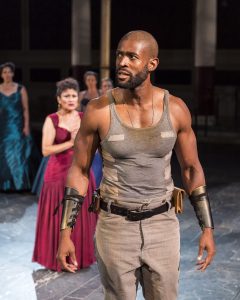 It is at this point that a semi-circle of light columns, which lay dormant among piles of thick black electrical cords for the entire 90 minutes, come to life—making Scott Davis’s scenic design a bit odd and underwhelming (really, John Culbert’s emotional lighting and the actors in this setting were effective enough on their own).
It is at this point that a semi-circle of light columns, which lay dormant among piles of thick black electrical cords for the entire 90 minutes, come to life—making Scott Davis’s scenic design a bit odd and underwhelming (really, John Culbert’s emotional lighting and the actors in this setting were effective enough on their own).
Given his piercing eyes and articulate facial expressions, the commanding Mark L. Montgomery bewitches as Agamemnon. As with the rest of the cast, his unamplified dynamic diction could easily play at the 17,000-seat Theatre of Dionysus. A gruff and buff Michael Huftile easily matches Montgomery in power as his brother Menelaus, and watching the two of them in a monologue sparring match is thrilling (they are unkempt, disheveled, unshaven and visibly filthy thanks to Jacqueline Firkins’ thoughtful costume design). The subtly witty Jim Ortlieb is sincere and engaging as the Old Man slave. The only man not up to snuff was Acquah Kwame Dansoh as Aquilles; no doubt a powerful stage presence, he developed little to no character traits, so there was no oomph.
Elegant and regal, Sandra Marquez dominates the stage as Clytemnestra, her very posture suggesting that she is used to being obeyed. Her performance is fearless, every moment committed with complete honesty. Stephanie Andrea Barron is a stunning Iphigenia, caught in the threshold between childhood and adolescence (and given Marquez’s Clytemnestra as a role model for Iphigenia, the young girl’s courage comes as no surprise at the end). Barron’s wide-eyed optimism is immensely lovable, and even her tragic monologues are tempered with innocence. Less convincing was Barron’s decision to let herself be sacrificed; she remained adolescent when this was her moment to enter full womanhood—as such, it lacked urgency.
Bethany Thomas, Emjoy Gavino, Jeanne T. Arrigo, Jess Godwin, and Tracy Walsh are a compelling chorus, using Andre Pluess’s original composition and Walsh’s stylized movement to provide context for the action. Though each member of the chorus is unique, the actresses perform with a physical vocabulary that enables them to act as one. Reminiscent of religious rituals, this makes the world of the play more vivid, and the chorus’s frequent presence downstage allows them to set the tone of a scene without ever speaking a line.
While Greek tragedy can sometimes feel pedantic and melodramatic, Newell’s Iphigenia is anything but. By turns sardonic, optimistic, and witty, the play provides a fresh perspective on an age-old story.
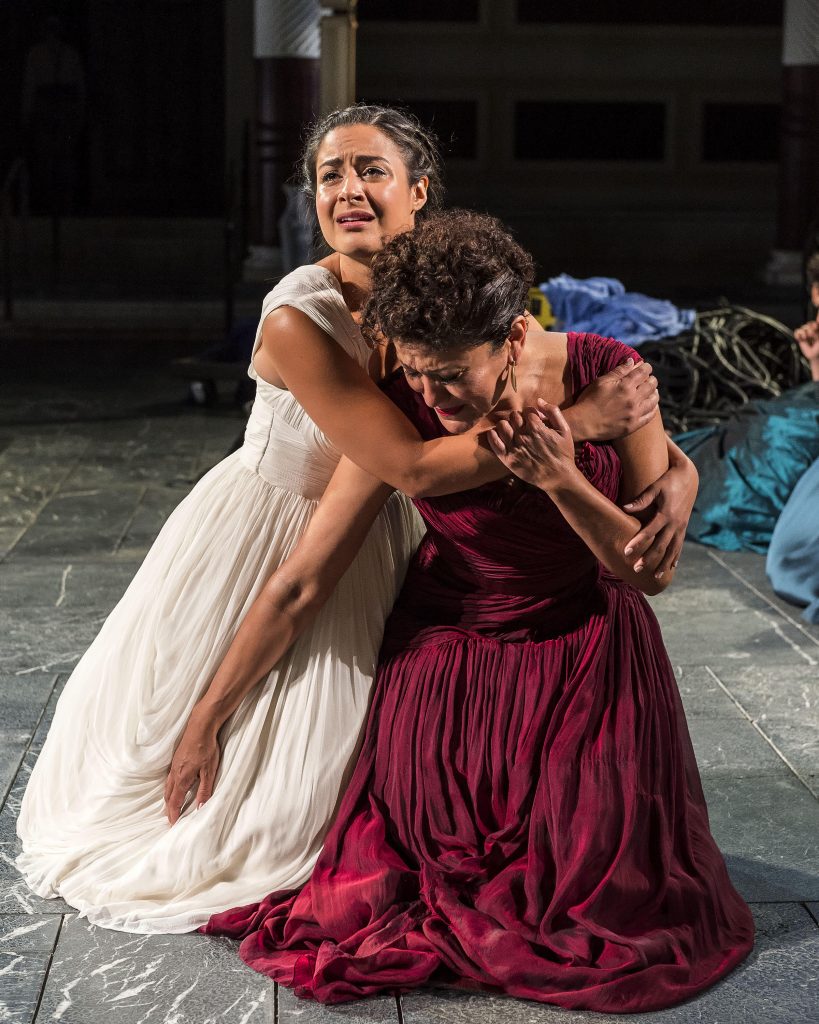 production photos by Craig Schwartz
production photos by Craig Schwartz
poster photo by Joe Mazza
Iphigenia in Aulis
Court Theatre of Chicago
Barbara and Lawrence Fleischman Theater
Getty Villa, 17985 Pacific Coast Highway
Thurs-Sat at 8
ends on September 30, 2017
for tickets, call 310.440.7300 or visit Getty
